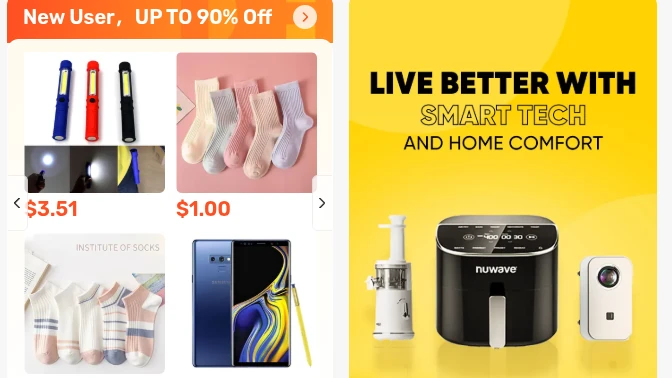A flood of viral TikTok videos has sparked a rush of American consumers downloading Chinese e-commerce apps like DHgate and Taobao, lured by promises of slashed prices on luxury goods, shoes, and even manufactured homes. But industry analysts and consumer advocates are raising red flags, warning that these too-good-to-be-true deals often come with hidden costs—and serious risks.
According to market intelligence firm Sensor Tower, both DHgate and Taobao recently ranked among the most-downloaded iPhone apps in the U.S., a dramatic climb fueled by TikTok influencers promoting so-called “secret hacks” to buy directly from Chinese factories and sidestep retail markups. While these videos tap into real frustrations about rising prices and global trade tensions, experts caution that the supposed savings are often illusory.
The allure of direct-from-China shopping
Many TikTok videos claim that consumers can avoid high prices by cutting out intermediaries and ordering goods directly from the source. It’s true that Chinese factories manufacture a vast range of goods sold under U.S. brands, including tech gadgets and home furnishings.
However, analysts like Sky Canaves of eMarketer say that bypassing retailers can be risky, especially for shoppers unfamiliar with navigating wholesale platforms like DHgate or consumer-unfriendly sites like Taobao, which cater primarily to Chinese users.
“If it sounds too good to be true, it probably is,” Canaves warned, adding that products ordered directly from Chinese factories may come with no customer support, refund options, or safety assurances. In contrast, more familiar platforms like Amazon, Walmart, Temu, and Shein offer at least some protections against fraud and defective products.
One example: Canaves ordered a children’s desk through a Chinese merchant on Walmart’s site that never arrived. Thanks to Walmart’s buyer protections, she got a refund. That kind of recourse is far less likely when purchasing through DHgate or by messaging factories via WeChat or WhatsApp, as some TikTok videos recommend.
Viral myths and misconceptions
Some social media claims are outright false, such as the assertion that Hermès bags are made in China, or that a consumer can easily order a single luxury furniture set from a Chinese supplier that normally sells entire container loads to retailers. Other claims misleadingly suggest that shoppers can evade U.S. tariffs—an unlikely outcome given the current trade policies.
These videos also play into the timeless appeal of “life hacks” and forbidden knowledge, but experts say there’s a reason people rely on retail middlemen: they offer reliability, safety screening, and logistics expertise. Skipping them might cost less up front, but the long-term price can be far higher.
Ultimately, analysts urge consumers to use common sense, especially when chasing bargains on high-end products or so-called “dupes” of luxury items. In a marketplace flooded with options, buyer beware is more relevant than ever.
Bottom line: Think twice before trusting a TikTok hack over a tested and trusted retailer.


